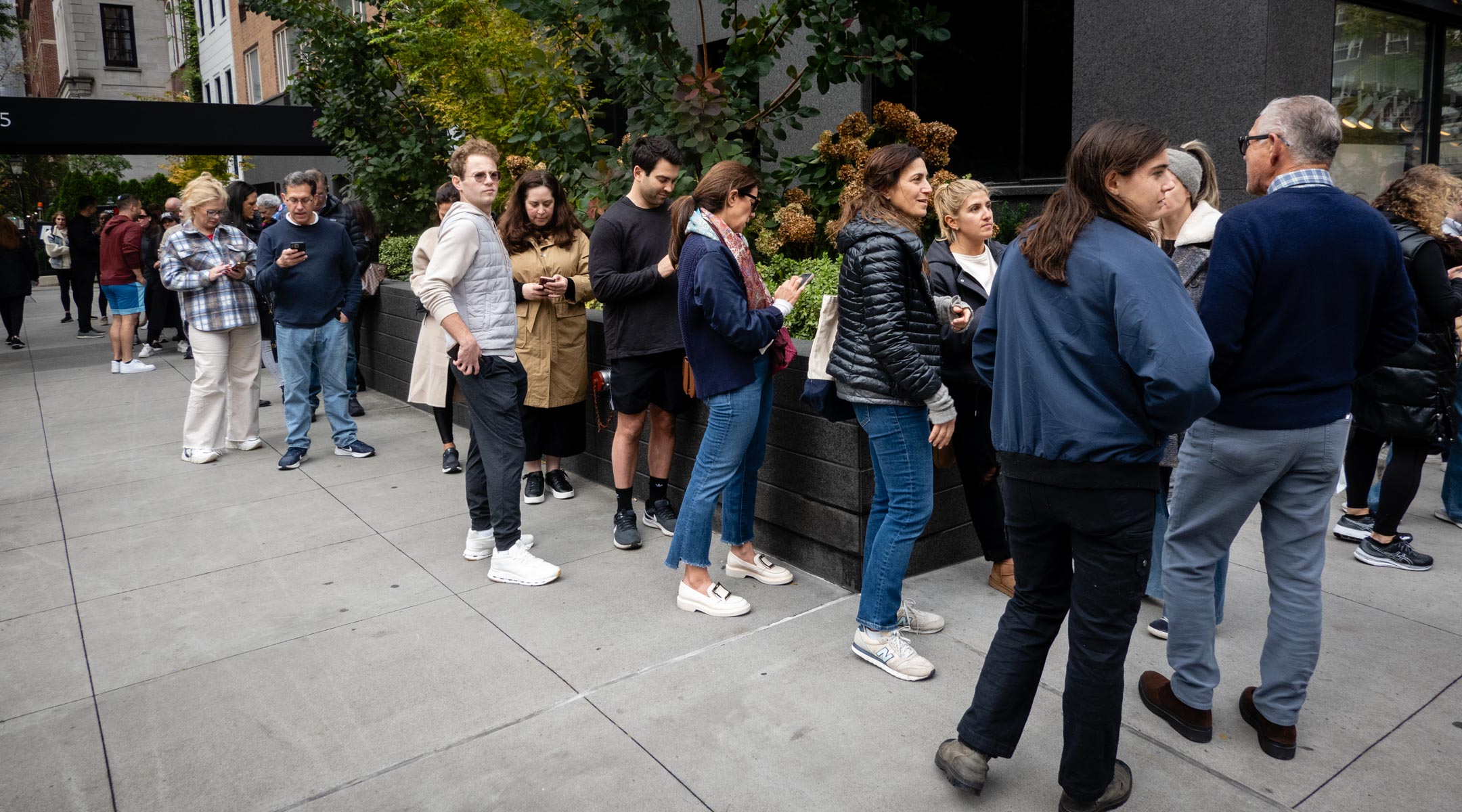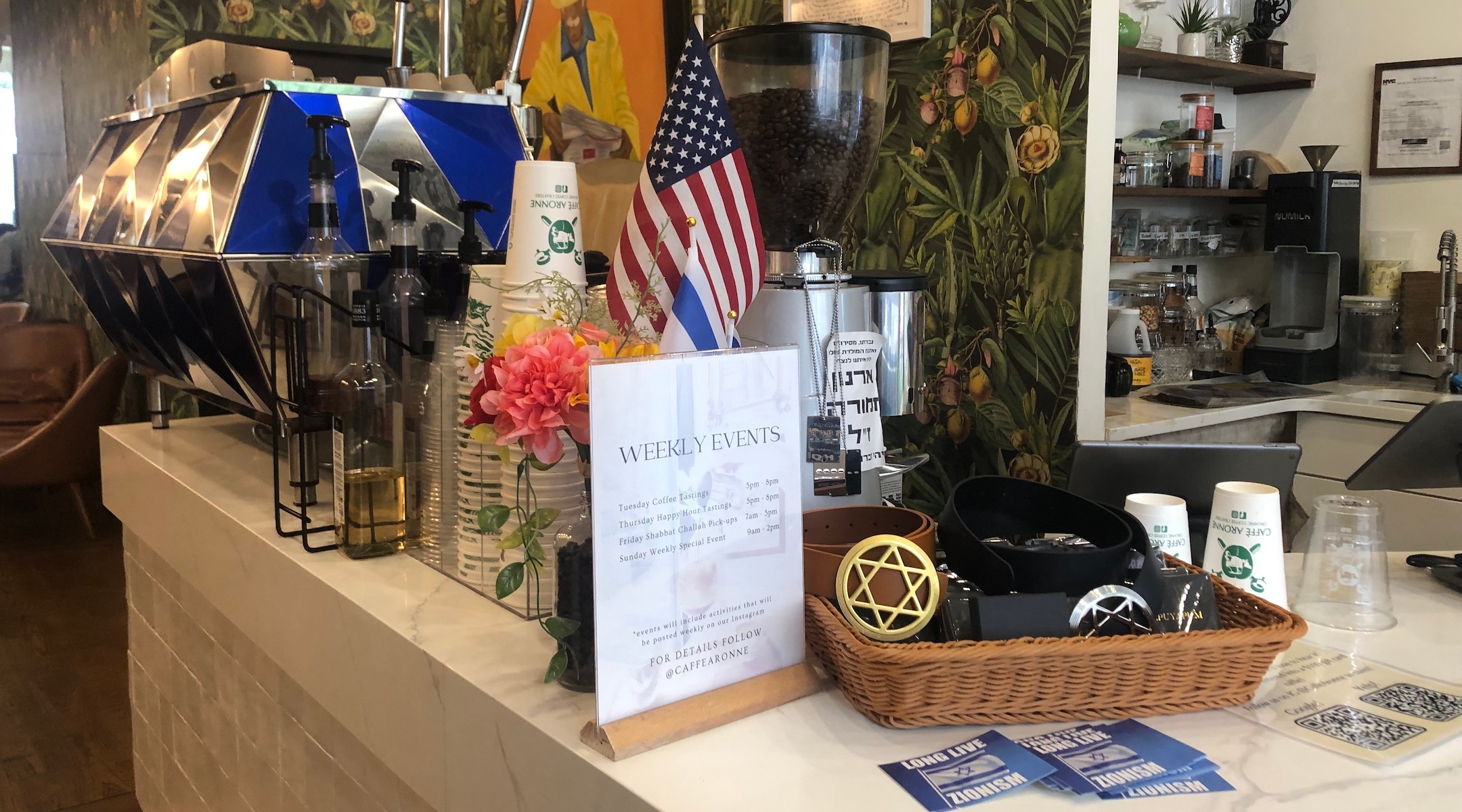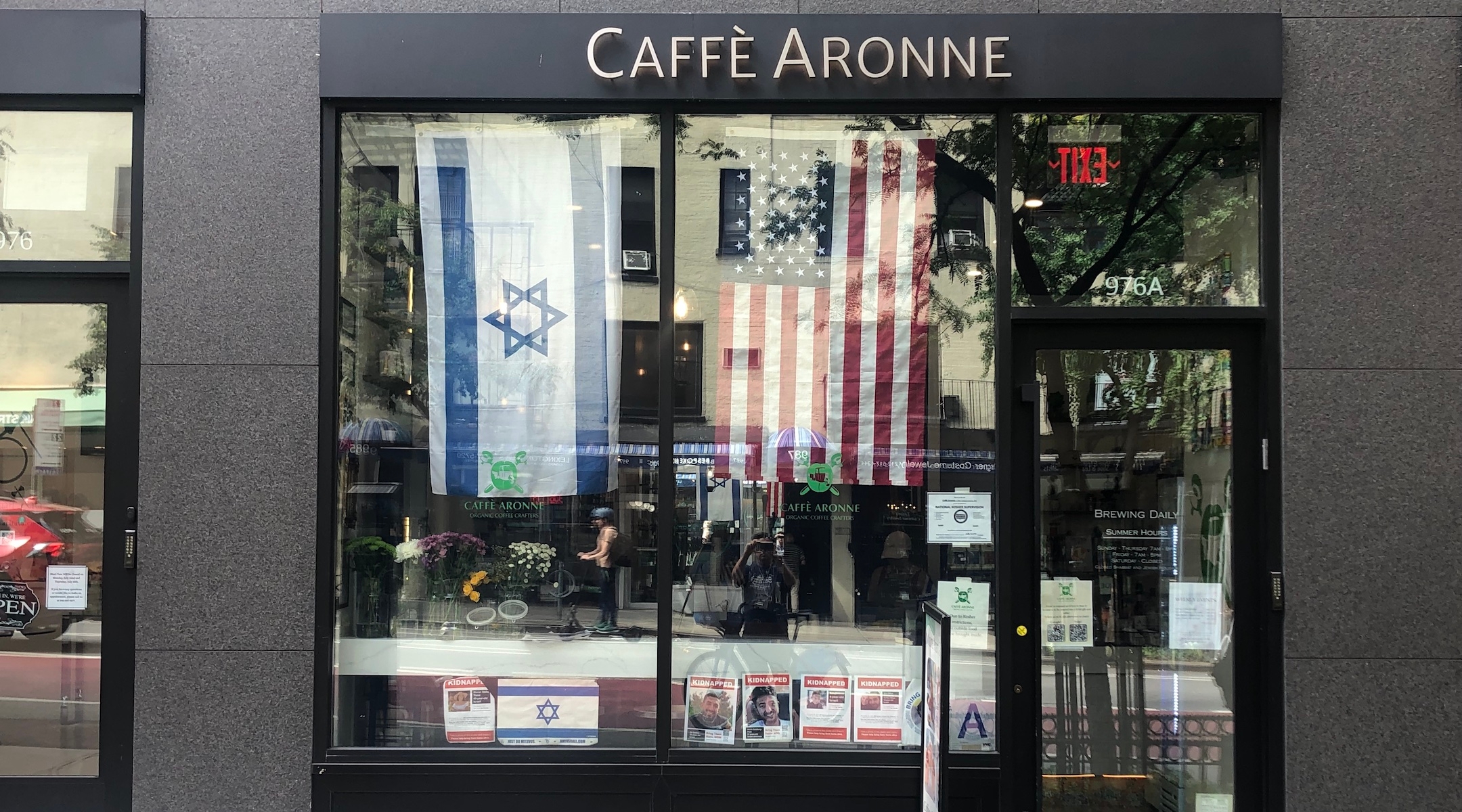When a flood of pro-Israel patrons descended on Caffe Aronne last November amid reports that its employees had walked out over its owner’s support of Israel, some of them encountered a barrier to showing support: The cafe wasn’t kosher.
That changed in late May, after the cafe’s owner, 25-year-old Aaron Dahan, finished the process of securing kosher supervision. He said the move reflected a form of “Jewish pride coming up in the face of all the antisemitism we’re seeing around” and said he was seeking to honor the Jewish community that showed up for him at a difficult time.
“If the community didn’t come out for us, we’d be in a very different position,” Dahan, a graduate of the Ramaz School, an Orthodox school in the neighborhood, told the New York Jewish Week.
In the wake of Hamas’s attack Israel on Oct. 7, Dahan — whose father’s step-cousin was among the approximately 1,200 murdered that day — placed a small Israeli flag next to an American flag near the cafe’s cash register. He also hung posters of the hostages held captive by Hamas in the window and began to donate a portion of his profits to Magen David Adom, the Israeli Red Cross.
What happened next triggered a social media frenzy; reports from a range of local news outlets, including this one; and an emotional rollercoaster within post-Oct. 7 New York. Dahan’s account diverges in some ways from the most versions shared online and in the most thoroughly reported article, published Nov. 21 by The New York Times. But in all versions of the story, some staff members expressed discomfort with Cafe Aronne’s pro-Israel stance, and some of them resigned over the course of several weeks. Then, after news of the staff dissent vaulted onto social media on Nov. 7, volunteers — including Dahan’s own mother, as well as baristas at other cafes — raced to Cafe Aronne to keep the coffee flowing.

Customers line up outside Caffe Aronne in the Upper East Side after staff members quit due to the store’s pro-Israel activities, Nov. 7, 2023. (Luke Tress)
Danielle Posner was one local Jew who made a point to support the cafe that day. “When I got on the line, part of me was so upset that we have to do this to show other Jews that we support them,” the first-time customer told the New York Jewish Week. “And part of me was so overwhelmed with joy that we came together so quickly as a people.”
The uptick in business continued for a week, Dahan said. “Everyone, to an extent, is trying to do their own thing — their own way to contribute; their own way to help,” he said of the outpouring.“I don’t think that the community is looking to go into hiding.“
The show of support prompted Dahan to seek kosher certification, he said. “Once the Israeli flag went to the window, we said we’re not opening on Shabbat,” Dahan said. “Then it was sort of a question of: Why not be kosher? The two go hand in hand.”
Since Oct. 7 and throughout the subsequent war between Israel and Hamas, several New York City restaurants have become flashpoints. Some businesses with ties to Jews or Israel, like the renowned 2nd Avenue Deli, have been targets of antisemitic vandalism, though many of these same establishments — such as Caffe Aronne and Gazala’s, a Druze-owned restaurant that was also targeted with anti-Israel graffiti — have seen business surge amid concerns that they were suffering because of their support for Israel.
Dahan — who is Orthodox and keeps kosher — started the process in April and became certified by National Kosher Supervision on May 26.
The transition, said Dahan, was a fairly easy one: He said the cafe has always had mezuzahs on the door, marking their Jewish ownership, and all the ingredients they used are kosher.
The kashering process involved toveling (immersing pots in a mikveh or ritual bath) and a deep cleaning “from top to bottom,” according to Rabbi Aaron Mehlman, the executive rabbinic director of National Kosher Supervision, who oversaw the transition.
In addition, “we did a few tweaks and a few behind-the-scenes upgrades,” Mehlman said, referring to some changes in machinery and suppliers. “It wasn’t treif [unkosher] before, but it’s actually in a much better place now.”

American, Jewish and Zionist symbols and materials are on display in the cafe in July 2024. (Julian Voloj)
Now, like other kosher restaurant proprietors, Dahan will pay a fee for ongoing supervision to maintain the Upper East Side location, at 976A Lexington Ave., as kosher. A second Caffe Aronne outpost, the original version on Greenwich Avenue downtown, though, won’t be kosher because Dahan said it would be too challenging to close on Shabbat.
“The West Village location is a bit different,” he said. “It’s in an area where we do much better on weekends.”
Dahan operates two Caffe Aronne locations: In addition to the uptown location at 976A Lexington Ave., there’s the original location on Greenwich Avenue in the West Village, which opened just days before the COVID-19 shutdown in 2020.
On the Upper East Side — which is home to a sizable Jewish community — the Caffe Aronne’s kosher certification appears to be a draw.
“I went a few times to get regular coffee before they were certified, but now that they’re certified it’s a lot more exciting and definitely opens up the whole menu to everyone,” said customer Rebecca Shamsian, a 31-year-old teacher from the Upper East Side. “It really enhances the neighborhood to have nice kosher places to go to.”
Kosher restaurants can be famously expensive, but Dahan, who estimates that approximately half of his Upper East Side customers are Jewish, said he has not raised prices since making the switch. Business, he said, is better than ever. “We see the average ticket goes up so essentially we’re seeing people buying more,” he said.
The revenue has enabled Dahan to donate two $36,000 “medicycles” — which carry lifesaving equipment through traffic and narrow alleys — for Magen David Adom, the Israel-based first responders organization. He has since collected approximately $10,000 to aid small businesses on the affected kibbutzes in the south of Israel.
The New York Jewish Week brings you the stories behind the headlines, keeping you connected to Jewish life in New York. Help sustain the reporting you trust by donating today.





